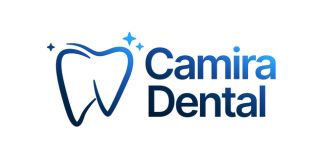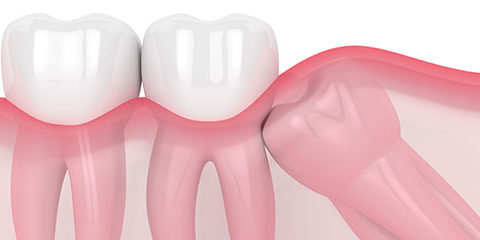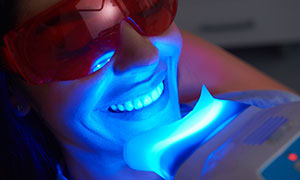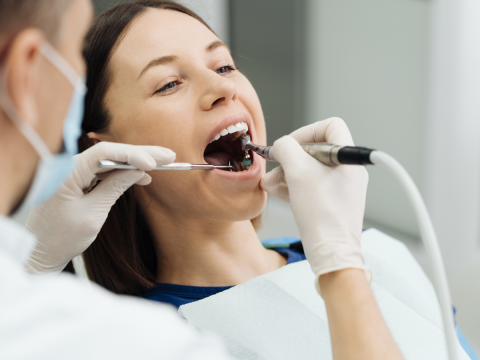What Causes Receding Gums?
Your gums play a critical role in protecting the sensitive roots of your teeth from food, bacteria and everyday use. If your gums are injured or receding, it can quickly become a painful problem.
Receding gums is a common oral health issue in Australia. It can affect one or more of the teeth in your mouth, and it may lead to discomfort, pain, infections and loose teeth.
Prevention is the best treatment for receding gums. In this article, we’ll discuss what causes receding gums, the common symptoms and how you can prevent this issue from occurring.
What is Gum Recession?
Gum recession is a condition where the soft gum tissue pulls away (or gradually wears away) from your teeth. This will eventually expose the sensitive roots underneath.
It’s a common form of gum disease that can lead to tooth sensitivity, pain, loose teeth and serious infections.
What Causes Receding Gums?
Receding gums can be caused by:
- Natural aging – Gum recession is a normal part of aging for most people. It’s most common in people over 65 and is triggered by decreased collagen production in your body.
- Plaque and tartar buildup – Buildups of plaque and tartar around the gum can push back the soft tissue and expose the roots of your teeth. Proper oral hygiene and regular dental cleanings is the best way to prevent this issue.
- Smoke and chewing tobacco – Using tobacco reduces saliva production, which is essential for healthy gums.
- Aggressive brushing – Long-term aggressive brushing can damage the gums and expose the roots of your teeth. Be gentle when you brush, and consider switching to an electric toothbrush that includes a pressure sensor.
- Poor oral hygiene – Receding gums can be caused by poor oral hygiene. Gently brushing and flossing your teeth on a daily basis is the best thing you can do to prevent a receding gum line.
- Tooth crowding – Teeth that shift due to crowding (e.g. when your wisdom teeth begin to break through) can displace your gums and cause the roots to move closer to the surface. Make sure you wear your retainer, or speak to your dentist about addressing crooked teeth.
- Gum disease – Periodontitis (gum disease) is an infection of the gums. This can damage your gums, detach the gum line from your teeth and cause recession.
- Gum injuries – Injuries and trauma to your gum tissue can cause the gums to detach from your teeth and recede. You can injure your gums with aggressive brushing and using your teeth for things they’re not intended for, like opening bottles.
- Lip and tongue piercings – Lip, tongue, cheek and mouth piercings may rub against your gums. This can injure the gum line and cause the tissue to recede. These piercings can also damage teeth.
Symptoms of Gum Recession
Visible gum recession that exposes the roots of one or more teeth is the most common symptom of gum recession. Other symptoms include:
- Discomfort and pain in your gum line
- Sensitivity to hot or cold food and drinks
- Sensitivity to sweets
- Sensitivity and discomfort when flossing or brushing your teeth
- Sensitivity during dental check ups and cleaning
Your dentist will assess your gum line and look for signs of periodontitis and gum recession as part of your regular checkups. If you are concerned about tooth sensitivity or visible recession, raise the issue with your dentist.
How to Treat and Prevent Gum Recession
Gum recession cannot be reversed. This means that prevention is the best medicine. Ensure that you’re practicing good oral hygiene:
- Gently brush your teeth twice per day
- Floss your teeth once per day
- Use an antimicrobial mouthwash twice per day
- Consider a soft-bristled toothbrush or an electric toothbrush with a pressure sensor
- Avoid using tobacco products
- Avoid lip, tongue, cheek and other mouth piercings
If you have inflamed or thin gums, gently massaging the area can reduce sensitivity and strengthen the soft tissue. This may be useful in preventing further recession. Be gentle when massaging your gums – aggressive massaging can damage the tissue and do more harm than good.
In extreme cases, your dentist may recommend gum graft surgery. During this surgery, a section of healthy tissue is grafted onto your gums and stitched into place. The healthy tissue may be taken from the roof of your mouth or from a human donor.
Visit Camira Dental if You’re Concerned About Receding Gums
The best way to prevent gum recession is to visit your dentist regularly. During your checkups, we can make sure your gums are healthy and provide advice on how to care for your teeth, gums and mouth.
Camira Dental is a family-owned dentist that works with clients across Ipswich. We provide general dentistry services including regular checkups, clean and scale, and consultations about oral health concerns.
It’s important to act now if you are experiencing the symptoms of gum recession. While we can’t reverse the condition, there are plenty of things you can do to prevent further tissue recession.
You can book an appointment online, or call our friendly team for more information on receding gums!









